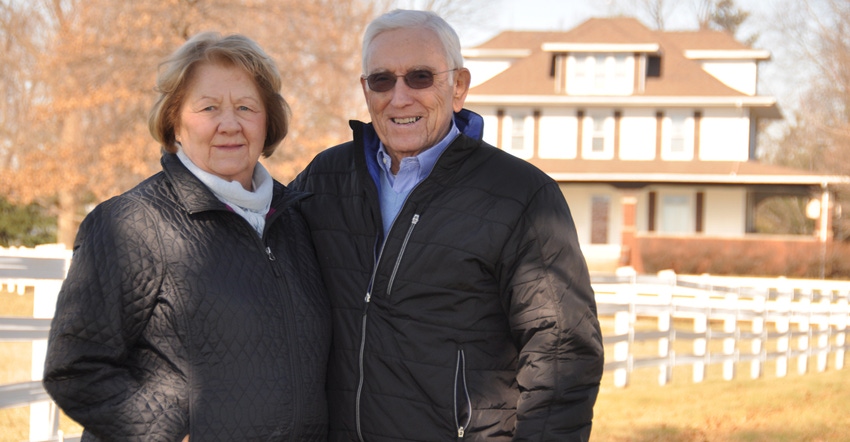
Reggie Dowell and Ralph Hunter go way back — all the way to 1952. That’s when Dowell’s dad bought their home farm and 160 acres at Greenview, Ill., from Hunter and his wife, Mabel.
“We moved there when I was 12, and I’ve lived there ever since,” Dowell says. He and his family have farmed a 120-acre piece next door since that time — what they call Hunter No. 1 — and a farm closer to Springfield, which is Hunter No. 2.
Sixty-five years later, the Dowell family is still farming that land, although for different owners. Hunter gifted the farms to the University of Illinois in 1975, and Dowell and his son David have worked with more than a handful of different farm managers for the university — and they’ve weathered the sea change of university farm management transitions over the past 11 years.
Back in 2006, when the U of I board of trustees announced its transition to taking the highest bid on university-owned farmland, Dowell sent an email to the board, sharing about his relationship with Hunter and how he valued land as a long-term investment.
“Although maybe 50-50 wasn’t fair, just to flat-out bid gave the tenant no incentive whatsoever to maintain productivity of the farm,” recalls Dowell, who was named a Master Farmer with his wife, Norma Jean, in 2016. “You could bid $200 and someone else could bid $200.10, and you could lose the farm.”
As a result of Dowell’s email, the board gave current tenants right of first refusal. It was a prophetic move for Dowell, who, while never outbid on Hunter No. 2, was outbid on Hunter No. 1. Dowell was able to match the bid and retained both farms.
Today, Dowell is glad to see the university has reversed its position on high-bid farm management. He likes to think the newest management system honors Ralph Hunter, who gave the land to the university because of the help it had given him. When Hunter began buying land as an investment, he was in the lumber business and had never worked a farm.
Dowell remembers their conversations well: “The university was very helpful in giving him assistance, and that’s where he learned to be a good steward of the farm and not necessarily receive top dollar every year.”
Revenues from the Ralph and Mabel Hunter farms have funded scholarships to agriculture students for more than four decades.
About the Author(s)
You May Also Like






